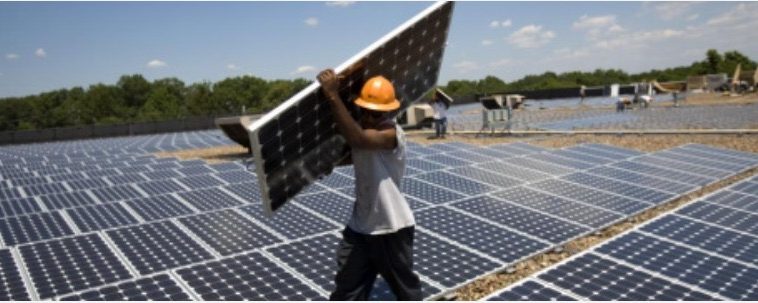West Africa has become a hub of educational progress, as governments, private entities, and academic leaders converge in their commitment to excellence. From substantial investments in infrastructure to the integration of cutting-edge technology, West African learning institutions are not just adapting to the demands of the 21st century but are actively pioneering innovations that transcend regional boundaries. This article delves into the specific advancements that are propelling West African educational institutions towards a future characterized by knowledge, ingenuity, and global relevance.
Digitization in Classrooms
The integration of technology in education is a crucial aspect of ensuring that students are equipped with necessary skills needed for the future workforce. West African learning institutions have embraced this reality by incorporating advanced technologies into their curricula and teaching methodologies. From primary schools to tertiary institutions, educators are incorporating digital tools and online platforms.
Universities across the region have implemented e-learning platforms, virtual classrooms, and online resources, enabling students to access educational materials from anywhere. This not only enhances the learning experience but also prepares students for the globalized, technology-driven world they will enter upon graduation. The Kwame Nkrumah University of Science and Technology in Ghana, for instance, has successfully integrated online learning platforms to supplement traditional classroom instruction.
Research and Innovation
A thriving academic environment is characterized by a commitment to research and innovation. Many West African universities are putting a greater emphasis on research and innovation. This involves encouraging faculty and students to engage in cutting-edge research across various disciplines. Increased research output contributes not only to academic advancement but also to solving real-world problems in the region.
Partnerships with international research institutions, as seen in the collaboration between the University of Ibadan in Nigeria and the Massachusetts Institute of Technology (MIT), have facilitated knowledge exchange and groundbreaking research initiatives. This not only elevates the reputation of West African universities on the global stage but also contributes to solving local and regional challenges through innovative solutions.
Collaboration with Various Industries
Recognizing the importance of aligning academic programs with the needs of the job market, West African learning institutions have strengthened their ties with industries. This collaboration ensures that academic curricula are relevant, and students are equipped with practical skills demanded by employers. The University of Cape Coast in Ghana, for example, has established partnerships with leading companies in various sectors to provide internships, mentorship programs, and guest lectures. This synergy between academia and industry not only enhances the employability of graduates but also contributes to economic growth by fostering a skilled and knowledgeable workforce.
Efforts have been made to enhance the quality of education through rigorous accreditation processes and quality assurance measures. This ensures that West African learning institutions maintain high academic standards and produce graduates who meet international benchmarks.
There is a growing emphasis on incorporating West African cultures and languages into the education system. This is aimed at preserving cultural heritage and promoting a more inclusive and identity-affirming educational experience.
Infrastructure Development
One of the most visible and tangible signs of progress in West African learning institutions is the significant investment in infrastructure development. Governments and private stakeholders have committed substantial resources to constructing state-of-the-art campuses, equipped with modern classrooms, laboratories, and recreational facilities. This shift is not only aimed at providing students with a conducive learning environment but also attracting top-tier faculty and researchers.
For instance, the University of Lagos in Nigeria has embarked on a campus expansion project, creating cutting-edge facilities for science, technology, engineering, and mathematics (STEM) programs. This investment in infrastructure is not only essential for the academic growth of institutions but also serves as a magnet for international partnerships and collaborations.
Many institutions still face challenges related to inadequate funding, which affects infrastructure development, research capabilities, and overall academic quality. While there have been improvements, concerns persist about the overall quality of education, including issues related to curriculum relevance, teaching standards, and assessment methods.
Millions of children continue to be deprived of education, representing one-third of the global count for primary school-aged children and one-fifth for lower secondary-aged children who are not in school. Those affected by humanitarian emergencies, particularly children and adolescents, are at heightened risk of missing out on education or permanently dropping out.
Political instability and social issues in some West African countries impact the overall stability and functioning of learning institutions.
Access to quality education remains a challenge, especially in remote areas. Even those who complete basic education face slim prospects of high-quality learning. Despite the imperative for quality education to equip children with necessary skills, knowledge, values, and attitudes for success in the 21st century, a 2023 World Bank report reveals that only 50 percent of African countries include computer skills in their school curriculum, compared to the global average of 85 percent.
While there have been instances of West African universities improving their global rankings, the overall performance of the region in international rankings remains lower compared to institutions in other parts of the world. The progress is uneven across institutions and countries, and ongoing efforts are needed to address issues such as funding, quality of education, and access to ensure sustained improvement in the region’s higher education sector.


